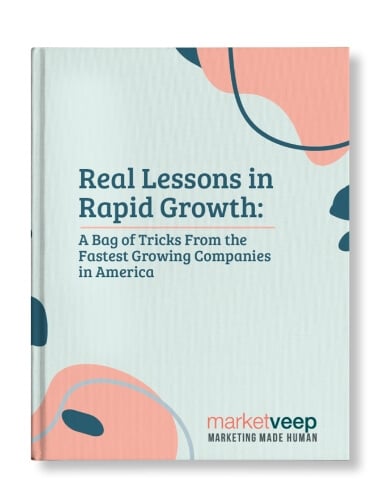7 Best Practices to Improve Your SEO


By Market Veep
Search engine optimization (SEO) is a foundational tool necessary for successful content creation. Without it, the reach and visibility of your content will plummet, as no one will know where to find it or even how to find it. When you buckle down and improve your SEO, it can become a turning point for your company’s content strategy.
Understanding SEO isn’t a simple task, especially when it comes to finding the “best” ways to use it to take advantage of the vast, diverse, and ever-changing streams of traffic on the internet. To help you become an expert at using search engine algorithms to your advantage, you’re going to want to become familiar with these tools and concepts:
- Keywords
- Topic clusters
- Searcher intent
- Meta descriptions
- Internal linking
- Authoritative content
Even if you just had to Google what a meta description is, you can still get a handle on how these best practices can improve your SEO. Nonetheless, delving into SEO can still feel overwhelming, so to help you get a firm grasp on it, let’s break these down one-by-one.



1) Understand the Keywords You're Using
Pinpointing your keywords has been, and will likely continue to be, a staple for inbound marketers and web content developers. While you might think that Google’s advanced - and constantly updating - search algorithms would have detracted from the value of keyword research, that couldn’t be more wrong. Keyword research is the foundational tool that allows you to build and curate content that will reach the people it needs to reach and stand out from an increasingly demanding and competitive crowd.
HubSpot offers users a helpful and comprehensive guide to SEO research as it pertains to keywords, but the bottom line is this: Understand your audience’s needs. The more research you do, the more relevant the keywords you employ in your content marketing will be. Understanding keywords is a way of getting into your audience’s heads so you can see what their problem is, what it’ll take to solve it, and how you can best deliver a solution.
Instead of littering your content with a variety of keywords in the hope that you’ll rank in search results, try pinpointing just a few keywords that summarize your content and define why it’s important for your audience. Google has gotten especially good at paraphrasing the keywords people use, so worry less about the exact words and more about the topics those words signify.
2) Embrace Topic Clusters
Acting as the quasi-replacement for keywords, HubSpot has helped introduce the marketing world to topic clusters and pillar pages. Topic clusters consist of a variety of subtopics that can all be plugged into an overall core topic, and this collection of subtopics is what makes up a pillar page.
Each subtopic should correspond to a specific blog post which links back to the pillar page, creating an interconnected hub of content, like the image from HubSpot below illustrates. Together, the collection of topics you create will come together to create your topic cluster
 If that sounds confusing, don’t worry. It’s not. Ultimately, a good topic cluster is anchored by a singular core topic. Each core topic should be broad enough to allow for multiple subtopics, but specific enough that it can be retained and understood by your audience.
If that sounds confusing, don’t worry. It’s not. Ultimately, a good topic cluster is anchored by a singular core topic. Each core topic should be broad enough to allow for multiple subtopics, but specific enough that it can be retained and understood by your audience.
The specific SEO benefit of topic clusters is the gravity with which they attract viewers. When you have a pillar page that clusters together various, interconnected subtopics, you maximize the visibility of your content by showing search engines that you’re an authority on those topics.
This way, someone stumbling across your topic cluster can easily find all of the associated content you’ve produced and linked to it. This doesn't only help you improve your SEO, but also ensures you have a wealth of helpful information to pass onto to relevant leads.
3) Identifying the Searcher’s Intent
Most of the time, someone who is searching for something is in the awareness stage of their buyer’s journey, which means that they’re aware of a problem they have and are interested in pursuing a solution.
You don’t want to try selling to someone in this stage, but you do want to step in and offer them a solution to their newfound problem. This way, you provide the potential buyer with the information they want, thus building trust between you and them that will hopefully lead to a lasting relationship.
For example, if you receive a lead’s information in exchange for an eBook on the basics of inbound marketing, then you can assume that this person is looking to educate themselves on a topic that you can help them become an expert in. As a response, you can follow-up with the lead and supply them with more content of a similar vein, or keep producing that kind of content, since you have proof that audiences have found it valuable.
By expecting the problem a potential lead may have, you can preemptively create content that will nurture them towards accepting the solution you have prepared for them.
But how does helpful content help you improve your SEO?
Content that people find useful, informative, interesting, and enjoyable tends to get more backlinks, shares, and comments than a sales pitch. The more attention you get online, the better chance you have of getting noticed by search engines.
4) Creating the Perfect Meta Description
 The meta description is the 135-160 character blurb that sits below your content on a search engine result page (SERP), giving the viewer a “sneak peek” into the content within. Try imagining your meta description as a mini billboard for your blog post, attracting your audience’s attention without actually giving them the content you want them to pursue.
The meta description is the 135-160 character blurb that sits below your content on a search engine result page (SERP), giving the viewer a “sneak peek” into the content within. Try imagining your meta description as a mini billboard for your blog post, attracting your audience’s attention without actually giving them the content you want them to pursue.
When you’re putting together a meta description, here are a few rules you’ll want to adhere to:
- Make sure you use your important keywords
- Write legibly
- Create a different meta description for every piece of content
- Stick to the character limit
You don’t want your meta descriptions to read like a cluttered list of keywords, so while including your important keywords can exponentially improve your SEO, don’t commit to it so much that you forget to write clear, legible copy.
The meta description will often be the first thing your reader sees after the headline, so make sure each one is unique to the content it’s advertising. You also want to stick within the confines of the recommended character limit, because going over will mean that the end of your meta description will disappear from sight, crippling its ability to sell a reader on your content’s value.
If you can follow these basic guidelines, then you’ll create succinct, effective meta descriptions that improve your SEO and entice searchers to check out your content.
5) The Power of Internal Linking
There’s always value in balancing your use of both internal and external linking. Internal links better expose visitors to your brand, while external links help establish your credibility as a source. When it comes to working to improve your SEO, however, internal linking is where you want to focus your attention.
There are multiple benefits to linking to existing content on your site, such as:
- Making it easier for search engines to scan your site for relevant content
- Improving your ranking on search engine results
- Prolonging a visitor’s stay on your website
- Increasing your “link juice,” or more simply, the strength of a link
Internal links can take a variety of forms, such as menu bar links, footers, or sidebars. The bottom line, ultimately, is that internal links increase the effectiveness of your SEO, as it gives search engines more information to work with, upping your odds of ranking on search results.
6) Becoming an Authority
Every business has to build a brand, and arguably the best way to build that brand is by making it stand out against the competition. The best way to do this is by establishing your authority in the industry you’re participating in.
Establishing authority means understanding your industry, anticipating the questions and problems your target audience will encounter, and preemptively preparing answers for them. You want to have a wealth of content that appeals to your audience’s needs, wants, and personal challenges, and the more you provide them with that, the stronger your authority will become and the easier it'll be to improve your SEO.
Getting more exposure for you and your content will also go a long way in helping cement you as an authority in your field. While something dramatic like writing a book is a guaranteed way to establish authority, not everyone has the time to commit to writing a book. Instead, try guesting on a podcast, or writing for publications other than your own, or just focus on creating a following on social media.
From a technical SEO standpoint, websites (or “domains”) are granted authority based on several factors, including internal links, external links, backlinks (links from other websites to your own), traffic, and content, among other things. Boosting your domain’s authority isn’t something you can accomplish over a long weekend, but it’s possible if you publish content frequently and follow these SEO best practices.
7) Keep Your SEO Relevant
Ultimately, the goal is to get people to come to your website and engage with your content. The more authority you and your brand can secure, the easier people will be able to find you in search engines.
SEO isn’t the only strategy you need to adhere to in order to get traffic and leads through your website. But it’s still a powerful tool in your marketing repertoire, and one you’re going to want to take advantage of every time you publish a new page or blog post.
Get The Latest From
Market Veep
RELATED ARTICLES

Master Sales Funnel Strategies: Tofu Mofu Bofu!
Between SEO, SEM, and SERPS, we’re always finding clever ways to break down concepts into four...

Why B2B Demand Generation Strategies Work
The sparkly, PR rep cousin of lead generation, this approach is all about growing your audience by...

Key Marketing Strategies for Robotics Manufacturers
In fact, experts project that the U.S. Robotics market is on track to pull in $7.85 billion in 2024...

Get Growing!
Download our eBook and get advice from 8 CEOs of Inc. 5000 companies in their own words.

GREAT MARKETING PARTNER
Market Veep is a great firm that handles all of our marketing efforts. This is the second time that I have used the firm. I highly recommend Market Veep!

Cres F.

EXCEPTIONAL EXPERIENCE
Market Veep's Onboarding Experts in Inbound Marketing are an absolute game-changer! From the get-go, their approach was top-notch. Market Veep's team has undoubtedly set the bar high for excellence in inbound marketing. Five stars aren't enough to commend their outstanding service!

Matthew W.

BEST PARTNER EVER!
As a growing business, setting up our first-ever HubSpot account was a crucial step towards enhancing our marketing and customer management strategies. From the moment we contacted MarketVeep, their team demonstrated professionalism, expertise, and a genuine desire to help us succeed. Overall, our experience with MarketVeep was exceptional, and we couldn't be happier with the results. Thanks to their guidance, we are now utilizing HubSpot to its fullest potential, streamlining our marketing efforts, and nurturing leads more effectively.

Jean M.

SET UP FOR SUCCESS!
We had an exceptional experience with Market Veep! Their team is professional, super organized, and friendly, and I truly enjoyed working with them. They executed on time and made the process super easy with their organization and documentation. In addition, they provided additional guidance and answered my many questions as I was new to HubSpot, and provided documentation resources for future use. We're now set up to leverage all that HubSpot marketing has to offer, and we couldn't have done it without Market Veep's expertise.

Bailey G.

OUTSTANDING WORK
There aren't enough words to describe the outstanding, professional work MarketVeep has provided to our company. From start to finish, the website design/development team at MarketVeep assigned to our project was extremely knowledgable, respectful, efficient and timely. The results went above and beyond our expectations and we could not be more thrilled with the improvements to the user experience on our website! Bravo MarketVeep, we'll absolutely be back with more projects!

Nadine B.

5 STARS FOR MARKET VEEP!
We had a fantastic experience with Market Veep! Their expert team seamlessly guided us through implementing HubSpot and provided comprehensive training across Sales, Service, and Marketing Hubs. Their knowledge and support significantly enhanced our workflow and overall efficiency. Highly recommend Market Veep for top-notch HubSpot solutions!

Anneke C.







